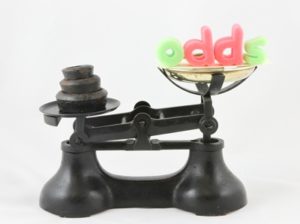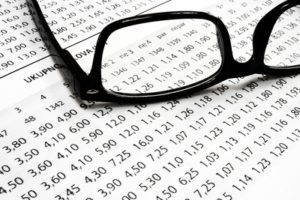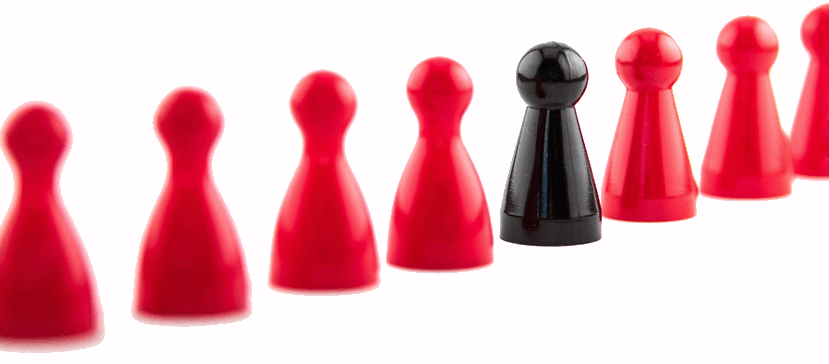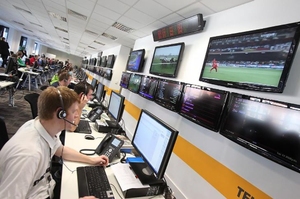 For many people, placing a sports bet is something that provides an enjoyable pastime. Some bettors get involved in analysing the odds. Others incorporate a variety of strategies into their betting systems. There are even those who place a bet on a total whim using gut instinct.
For many people, placing a sports bet is something that provides an enjoyable pastime. Some bettors get involved in analysing the odds. Others incorporate a variety of strategies into their betting systems. There are even those who place a bet on a total whim using gut instinct.
Regardless, the main factor in all situations is that a bettor has fun with their sports bets. For those players who put a lot of focus on the odds, there is a question that lingers. Can you put a whole lot of trust in these betting odds?
By this, we don’t mean if the bookmaker responsible for them is trustworthy. We’re talking about how reliable they are as an indicator of a specific outcome happening. There will usually always be a favourite and an underdog in the odds provided. Is it definitive that these roles are the way that the odds suggest?
And can gamblers put their trust in placing a bet on a game by taking those odds as they are? After all, bookmakers tend to set the odds in the beginning. So, is it more likely that they will only tailor those odds to suit their needs more so than the bettors’? Let’s look at the reliability of those odds and if you can put your trust in them.
How Do Betting Odds Work?
 To get a better idea of the reliability of odds, it is good to know how they work. The odds that you see at a sportsbook represent the probability of something. Let’s say that Manchester City are set to face Bournemouth. The odds would usually suggest that the former team is the favourite. Meanwhile, Bournemouth is the underdog in this situation.
To get a better idea of the reliability of odds, it is good to know how they work. The odds that you see at a sportsbook represent the probability of something. Let’s say that Manchester City are set to face Bournemouth. The odds would usually suggest that the former team is the favourite. Meanwhile, Bournemouth is the underdog in this situation.
In this respect, bookmakers would place a high probability on City winning. Hence, if you see odds in favour of City at a sportsbook, the reliability of them is quite accurate. This is especially true when odds have just been set in the early market when odds are mostly based on stats and previous form – plus odds traders will factor in how popular they think certain lines will be and compare them with what other bookies are offering.
Probability is an expression of how likely something is to happen. It is actually something as humans we struggle to estimate properly. Should a sportsbook have an outcome to an event with high probability, it is more likely to happen. The same is true of the reverse.
A simple explanation of probability is a coin toss. Coins have two sides – heads and tails. This means that there is a 50-50 chance of it landing on either side. Bookmakers would express this as a 1/1 fraction. Betting odds for sports events and such aren’t quite as simple as that. That’s because various factors can affect a team’s performance.
Let’s use the example from before of Man City and Bournemouth facing off. If the sportsbook offers odds on City of 2/1, the probability is 33%. The calculation for this is 1/(2+1) = 0.33%. City has a 33% chance of winning. Bournemouth has odds of 5/1, meaning 1/(5+1) = 0.16. Thus, this team is the underdog, having a 16% chance of winning.
The point to remember is that the odds offered don’t always stay the same. You may visit a site one day and see a favourable team with odds of 2/1. Three days later, you may return and see that the odds have changed to 4/1 on that same team. How is it possible that this can happen, though?
Betting Odds Give Implied Not True Probabilities

Betting odds naturally factor in profit margins for the bookie and are never the quite as good as true odds. With the true odds the probabilities for an event will always add up to 100% if you add the chances all the outcomes together. If you add all the bookies odds together for all outcomes you will come out with a number above 100. The amount the number is above 100 is the profit margin built into the market.
However, if margins are applied equally to all outcomes then the market as a whole is still a good reflection of the balance of probabilities, or at least a reflection of how bookmakers see the probabilities. This is known as the implied odds.
Some people think they can make a better return if they believe the bookies have miscalculated their probabilities and they know something the bookmaker doesn’t. Indeed, this is why ante-post betting is popular with so called ‘professionals’ as the further in advance you bet the more the market is weighted using stats and odds traders, which is where some people can find an edge.
The closer you get to an event or the more people that back a market the more the odds then start to become dependent on public opinion. This is one reason why odds fluctuate as time goes on.
Reasons Why Betting Odds Change

If you are able to rely on betting odds, then why would they change? The trustworthiness of something surely means that it would stay the same, right? Well, if everything were like a toss of a coin, then yes. But a coin toss has only two outcomes, and there is very little that can affect that. Indeed, this is why the odds in casino games always stay fixed because there are finite number of known outcomes and set probabilities for each.
Sporting events and financial markets are not the same as this. There is less certainty when it comes to these events. Thus, the chance on any given outcome occurring can change, and most likely will. This can happen before a match or game occurs, and even during it while live betting.
Various things can affect the betting odds offered at bookmakers. New information can come to light on who is playing. Injuries to certain players can have a big impact on a team’s potential for victory. And the squad that a manager chooses to play is something else that can affect odds.
In early August of 2022, Man U manager Erik ten Hag had to think up a plan of action. Striker Anthony Martial suffered a hamstring injury before the Premier League’s opening game. Hag chose him to front the team due to Cristiano Ronaldo being out of action. Family reasons had pulled him away from Man U’s tour of Asia and Australia. Yet with Martial not in top condition, ten Hag had to consider bringing Ronaldo back into the fold.
Man Utd were due to face Brighton in the opening game. Manchester United were odds-on favourites to win that match. Especially considering it was taking place on home soil at Old Trafford. Yet the dropping of Martial from the opening game was the first in a series of bad moves. Ronaldo wasn’t brought on to the pitch until the second half. And fans have been consistent in their dislike of the ownership of the club by the Glazer family. It all went wrong for the team, which suffered defeat at the hands of Brighton.
Once the Premier League fixtures came to light, Man U thought it would have an easy gig. Brighton hasn’t ever been in the top five teams of the league at any point. Man U has ridden atop the wave on many occasions, though.
It seemed like a foregone conclusion that the team would beat out Brighton. Because of this, bookmaker odds on Manchester United claiming a win were positive. But as the time for the match drew closer, those odds altered. Team changes, lack of confidence in the new manager and more drove such. But these are not the only things affecting changing odds.
It is fairly obvious that odds change based on news, injuries and all sorts of factors that can affect an outcome. They are, however, also driven by how much people bet on given outcomes. This is because bookies want balanced booked (an equal proportion of stakes on all possible outcomes) as this guarantees a profit.
Therefore, if everyone is backing one outcome the odds shorten on that outcome and the odds on other outcome lengthen, even though in reality the physical factors may not have changed. Bookmakers don’t like risk, it is the punter that takes all the risk, and so they will shift odds to reduce their own exposure as much as possible.
Closer to an event odds can end up being driven largely by how much is bet and this can result in those odds drifting further away from true probabilities. Indeed, the reverse can be true too. Public opinion, taking views from a large sample size, is often a really good measure of likely chance. The whole idea that if you ask 5000 how many sweets there are in a jar the average will be really close to the real answer. The same can be true in betting markets and where people end up putting their money can in many instances make odds more accurate. It depends on the market and how many people are betting on it.
Watching Where the Money Ends Up
 Where the money is going is another thing which drives change. Bookies adjust their prices to reduce exposure. And if they see that more people are betting one way, they will alter the odds. This is why betting exchanges have become quite helpful to bookmakers today. They can see in which way popular opinion lies.
Where the money is going is another thing which drives change. Bookies adjust their prices to reduce exposure. And if they see that more people are betting one way, they will alter the odds. This is why betting exchanges have become quite helpful to bookmakers today. They can see in which way popular opinion lies.
With more uncertainty in a particular outcome, bettors will back the alternative. And this is something that bookies take notice of and change their odds in accordance. Exchanges display how many people favour each outcome. They are pretty much like a modern-day opinion poll. Money talks, and thus, bookmaker odds often fall in line with that public opinion from an exchange.
Sportsbooks offering fixed odds betting will alter the odds to balance their own books. Exchanges represent how many people believe a certain outcome will happen. You can take a look at one of these to see which way the public opinion rests. It is key to remember that more information drives more liquidity into the market. Poor liquidity means poor prices, in general.
As the start of an event draws closer to taking place, things will usually change. Some of the uncertainty involved at the beginning is dismissible. What was unknown at the start has usually become known by this point.
This means there is an increase in confidence over the likely outcome. Smart bettors will thus add volume to the market based on that knowledge. Of course, a bookie that is confident in its original assessment may choose not to adjust the odds. That could result in them being out of line with other providers in the market, though. That leaves them exposed.
Rather than take the risk of sticking with the original odds, bookies play it safe. This results in them adjusting the odds to adhere to the general flow of money. More money on a specific outcome results in shortening odds. The alternatives to that outcome are, as a result, lengthened.
Are Odds A Reliable Approximation Of True Chance?
 The short answer to this question is yes, usually. They serve as a good approximation of the real chances in most instances. But in reality, it does depend upon when you look at them and how far in advance that is to the event starting. As we know the further into the future you look the more uncertainty. Odds are a reflection of probabilities in a given moment and can shift as time changes.
The short answer to this question is yes, usually. They serve as a good approximation of the real chances in most instances. But in reality, it does depend upon when you look at them and how far in advance that is to the event starting. As we know the further into the future you look the more uncertainty. Odds are a reflection of probabilities in a given moment and can shift as time changes.
If you go ahead and place a bet in the initial stages of a bookie’s odds becoming available, they may change. Later on down the line, different pieces of information can sway the odds. And that doesn’t always mean that things remain in your favour. If a couple of key players end up injured or aren’t chosen to play, it could prove helpful to the opposition. And this could affect the odds.
It is for this reason that doing your own research into any sport and the matches is vital. You can utilise the odds and the details of an exchange to determine where the focus lies. But you need to know as much information and insight into an event as possible.
The odds are a good guide to follow, but beware that they can change. This doesn’t mean they won’t reflect an accurate outcome as time goes by. Instead, it means that the probable outcome has the potential to change. Nothing is 100% guaranteed in gambling of any kind. And anything can happen in a sporting event, as people will know.
Very few predicted that Leicester FC would be successful in the 2015-16 Premier League. They had odds of 5,000/1 pinned to them at the start of the season. The team had almost suffered relegation in the previous season. Few saw them as being anything special for the next year. Yet various consistent high-quality episodes of gameplay worked in the team’s favour.
As the weeks went by and Leicester continued claiming victories, public opinion turned. And so too did the odds on Leicester coming out on top. Bookmakers saw the tide turn and adjusted their odds to suit the way that wagers were being placed. That exists as one example of how odds at bookmakers reflect the probability of an outcome. Even if that outcome wasn’t predicted in the initial stages.
Different types of betting rely on different information, too. For example, odds on a football match are reliant on data. Meanwhile, betting on political events is quite dependent on public opinion more so. Regardless of which, the odds will usually always reflect in-the-moment probability.
There is nothing that says those odds won’t change, though. And if you think about it, they should change as the probability does. Bookies would be foolish to set up odds and leave them as they are. Bettors could take liberties with such a setup. And sportsbooks are never about giving money away when they don’t have to!
Complex Markets Have Higher Uncertainty
 From everything we have said here you can see that odds are generally a good approximation of real probability. However, this is most true for simple markets such as the match result, outright winner, over/under markets, etc. It is less true when we start to get into more complex markets like goalscorer bets, bet builders and anything that has more than a few possible outcomes.
From everything we have said here you can see that odds are generally a good approximation of real probability. However, this is most true for simple markets such as the match result, outright winner, over/under markets, etc. It is less true when we start to get into more complex markets like goalscorer bets, bet builders and anything that has more than a few possible outcomes.
Let’s take goalscorer markets. These are complex because so many players could score in a game. We also don’t know who is going to start in advance and we don’t know who will be a substitute, who will come on or off during the match and when and whether a player might get injured. These markets have a lot more in built uncertainty and therefore risk, more risk means more cautious bookies and higher margins.
Goalscorer odds, therefore, are often not that good a reflection of the true odds of any given player scoring. Still they can be good to compare players. A player with odds of 8/1 will generally score around half the time as a player with odds of 4/1, for example.
When we start to combine markets too the overall odds start to drift further away from true probabilities. Take accumulators, for example, in these the margins are additive so the more selections you have the lower the total odds you are given are from the real chances of something happening. E.g. an acca with odds of 500/1 is probably closer to 1000/1 in true odds.
If you start to combine markets within an event, such as with a bet builder, this is known as a related contingency (the outcome of one thing can affect the outcome of another), therefore, odds are ratcheted down as a result. Bet Builders are terrible value bets. You could have a bet builder with odds of 100/1 when the true odds are closer to 300/1. No wonder bookies push bet builders and accas hey!
The more complex a market is and the more outcomes there are generally the less accurate those odds will end up being and the worse value for you as a punter. The more complex a bet is the less competitive a bookie needs to be too. While you might compare match odds between bookies are you going to compare a bet builder with 6 selections, probably not. This means they don’t need to vie for your business as much in these markets.
For odds that are closest to true chances stick to simple markets with few outcomes. These markets are the ones most so called ‘professionals’ bet on for that reason. The more risk and uncertainty you can take out the more reliable your decision will be. Most serious punters also use exchanges because they are a raw reflection of what people think will happen and this doesn’t require margins or odds traders that can skew markets.
